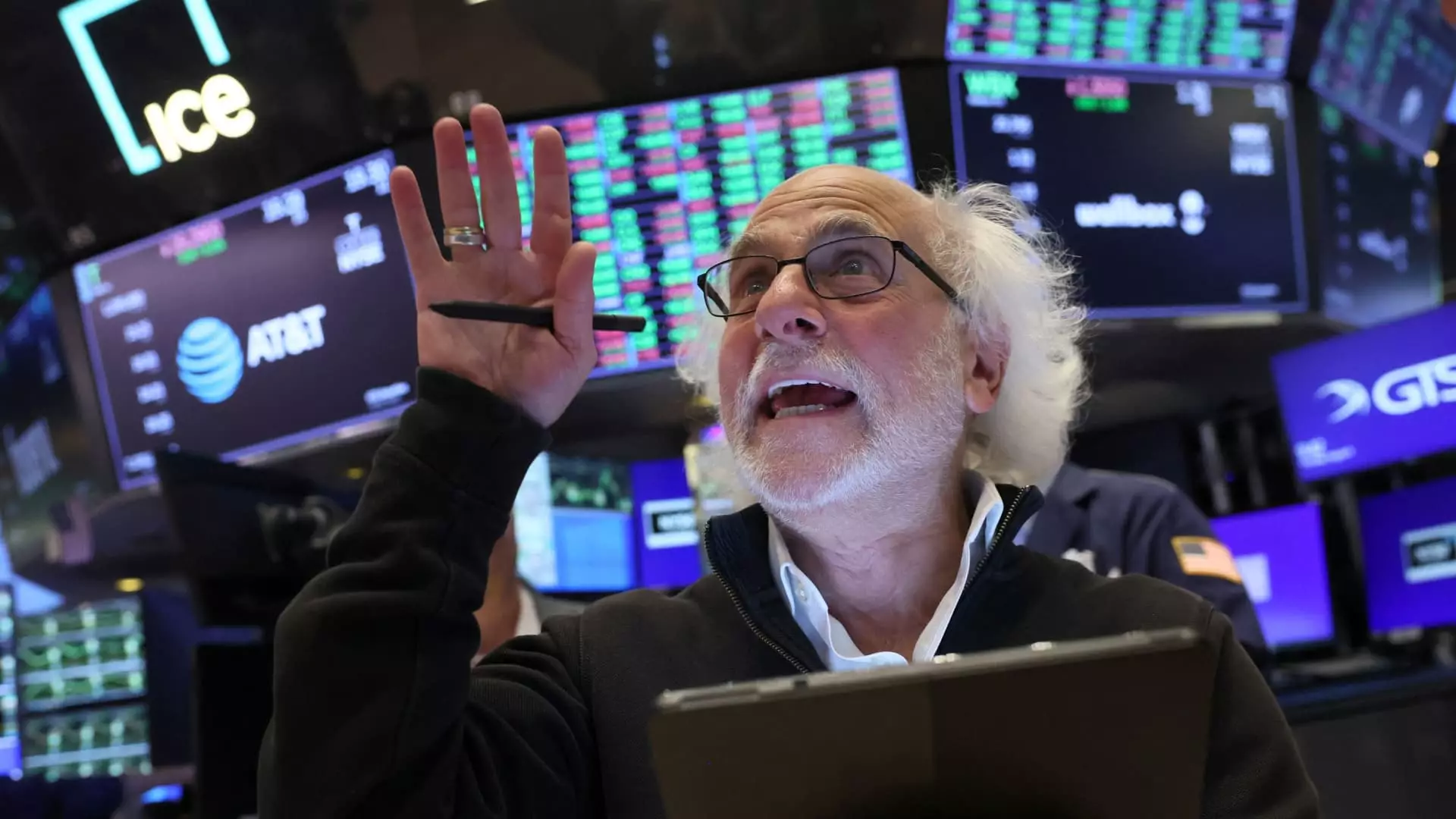What transpired on Wednesday was nothing short of a financial spectacle, as stocks soared in reaction to President Trump’s unexpected tariff reversal. The S&P 500 launched into a euphoric ascent, exploding by 9.52%—a move that speaks volumes about the market’s fragility and underlying investor sentiment. This surge represents one of the most significant single-day gains since World War II, with the Dow Jones Industrial Average benefitting from a staggering increase of 2,962.86 points, and the Nasdaq posting its most considerable jump since January 2001. Clearly, the market’s trajectory is profoundly impacted by political decisions, highlighting a connection that should not be taken lightly.
The Fragile Nature of Market Confidence
The sheer magnitude of this stock-market rally underscores a critical reality: the confidence in financial markets is as precarious as ever. Investors had recently endured a punishing four-day stretch that saw the S&P plunge 12%, briefly dipping into bear-market territory. This volatility speaks to a broader concern regarding the sustainability of market gains when so much is determined by whims of political maneuvering. After such a dire sequence of events, a single announcement can swing perceptions from despair to ecstasy in a matter of moments. It illustrates not just market behavior but also investor psychology—rationality often takes a backseat to the thrill of optimism and sudden hope.
The Reality Check That Awaits
While the recent rally is being heralded as the turning point we desperately need, let us not get swept up in the current of exuberance. Analysts and strategists caution that although the immediate market response is encouraging, the unraveling can quickly return in the face of renewed trade hostilities. Trump claims that over 75 countries have reached out for negotiations, a statement that may be more about posturing than genuine progress. The upcoming geopolitical landscape remains uncertain, and traders should remain vigilant rather than overly optimistic.
A Lesson in Political Influence
From a center-right perspective, it is vital to recognize that while the reversal of tariffs may foster temporary relief, it should also bring us to reflect critically on the broader implications of economic protectionism. The fact that markets can react so violently to political decisions highlights the intertwined nature of governance and economic stability. Advocating for reduced tariffs is an essential step towards healthy trade relations, but such policy changes must be implemented with caution and foresight. The goal should be not just to create illusionary gains but rather to establish robust frameworks for economic growth that stand the test of time.
As thrilling as Wednesday’s rally was, it is prudent to avoid the impulse to declare victory prematurely. Trump’s trade policies have yet to shake out, and uncertainty looms large over the financial landscape. The investment community should approach the situation soberly, prepared for the potential return of volatility. What should resonate with us is not merely the short-term gains, but a commitment to a sound economic strategy that promotes lasting growth while safeguarding against the dangers of unpredictability entrenched in nationalistic economic policies. The lesson here is clear: markets may soar, but caution and critical thinking must remain the guiding principles in navigating these tumultuous waters.

